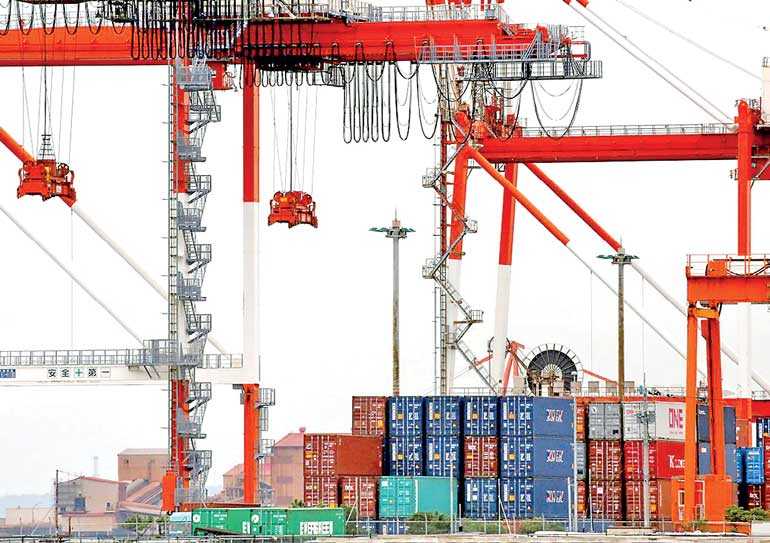Saturday Feb 21, 2026
Saturday Feb 21, 2026
Tuesday, 19 March 2019 00:00 - - {{hitsCtrl.values.hits}}

TOKYO (Reuters) - Japan’s exports fell for a third month in February in a sign of growing strain on the trade-reliant economy, suggesting the central bank might be forced to offer more stimulus eventually to temper the effects of slowing external demand and trade frictions.
Slowing global growth, the Sino-U.S. trade war and complications over Britain’s exit from the European Union have already forced many policymakers to shift to an easing stance over recent months.
Japan is in a similar situation to much of the rest of the world, where factories have slammed on the brakes and business confidence has plummeted in the wake of rising global economic uncertainty.
Ministry of Finance data showed on Monday exports fell 1.2% year-on-year in February, more than a 0.9% decrease expected by economists in a Reuters poll.
It followed a sharp 8.4% year-on-year drop in January, marking a third straight month of falls due to drops in shipments of cars, steel and semiconductor production equipment.
The trade data comes on top of a recent batch of weak indicators, such as factory output and a key gauge of capital spending, which have raised worries that Japan’s record run of postwar growth may come to an end.
Some analysts say a recession cannot be ruled out.
The Bank of Japan last week cut its view on exports and output, while keeping policy unchanged. Yet, extended weakness in exports could put it under pressure to deliver more easing, especially as inflation remains well off its 2% target and pressure on businesses and consumers continues to rise.
In the post-policy press conference last week, BOJ Governor Haruhiko Kuroda acknowledged the challenges the economy faced but gave no indication there would be any additional stimulus.
But Kuroda may have to change tack in the face of a run of weak economic indicators.
Many in the BOJ expect Japan’s economy to emerge from the current soft patch in the second half of this year, assuming China’s stimulus plans can revive demand there.
The biggest worry among BOJ policymakers is that weakening exports and output will hurt corporate sentiment, prompting firms to delay capital expenditure and wage hikes.
Monday’s trade data showed exports to China, Japan’s biggest trading partner, rose 5.5% year-on-year on shipments of semiconductor production equipment and cars, rebounding from a 17.4% drop in January.
However, overall trade to the Asian giant remained weak, as even after averaging effects of the Lunar New Year holiday, China-bound shipments declined 6.3% in the January-February period from a year earlier.
Seasonally-adjusted overall trade values rose 6.7% month-on-month in February, the strongest rise in two years. Export volumes fell 0.6% in the year to February after the previous month’s 9.0% decline.